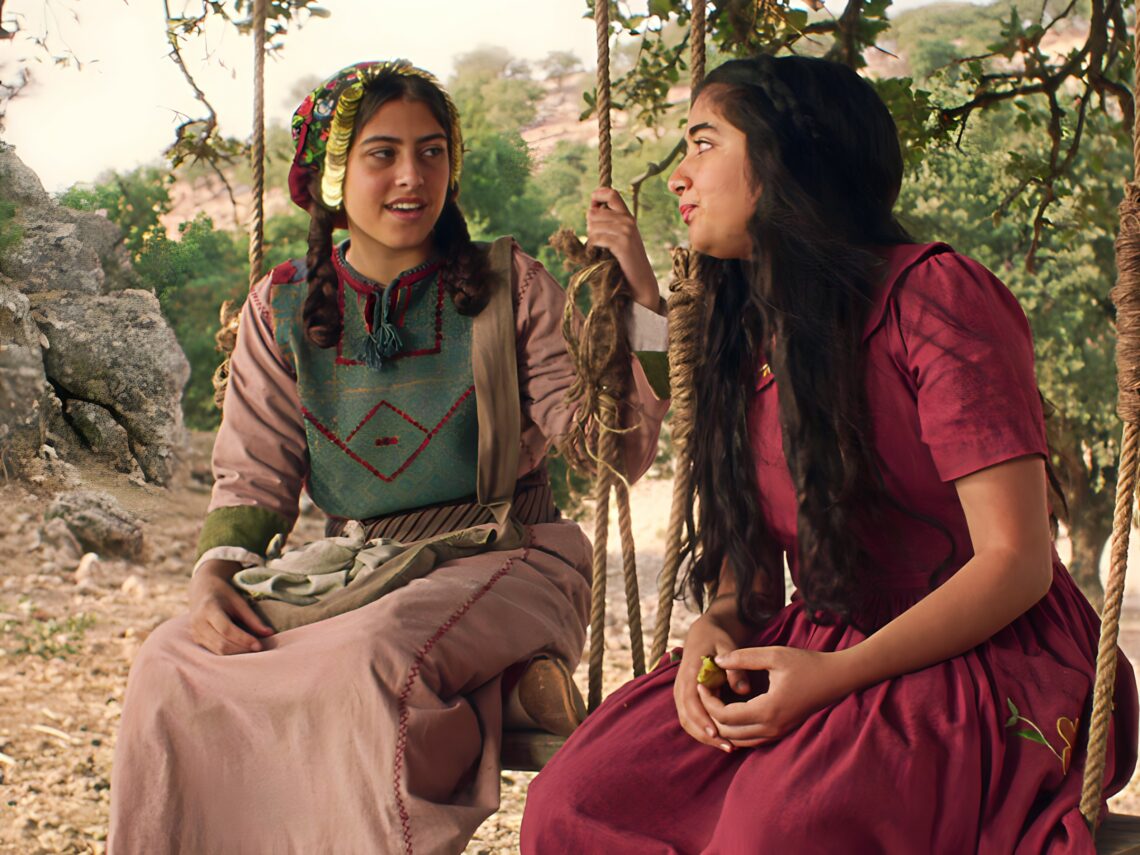Darin J. Sallam’s Farha premiered at the Toronto Film Festival in September 2021, garnering critical acclaim at festivals across the world before securing a deal with Netflix and landing up on the streaming platform.
This poignant coming-of-age story is set against the backdrop of the Nakba (the Catastrophe), which marked the beginning of the 1948 Palestinian displacement. The story of Farha, which currently holds a 100 per cent rating on Rotten Tomatoes, revolves around a 14-year-old Palestinian girl named Farha, portrayed with tremendously measured nuance by Karam Taher.
Farha dreams of pursuing an education and attending school in the city, much like her best friend Fareeda. However, her father, Abu Farha, played by Ashraf Barhom, has different plans, envisioning her future in marriage. But as a doting father, he eventually comes around, and Farha is all set to embark on a new life full of hopes and dreams.
As the story unfolds, Farha’s life takes a tragic turn as she witnesses the horrors of the Nakba, a pivotal moment in Palestinian history. The film provides a gripping portrayal of the upheaval and the personal tragedies faced by the Palestinian people during that time without the camera even leaving a tiny room for the most part. Instead of showing us harrowing images of scattered bodies and mutilated figures, we experience the horrors of the unfolding terror through the eyes of Farha, who is locked inside her home the entire time. You feel her terror, suffocation, desperation, and numbed ennui as the hours go by.
Why you must watch the Palestinian film Farha
Farha is not just a moving story; it is also an important film to watch for its historical significance. The film sheds light on a chapter often overlooked and unknown to many. The Nakba, meaning “catastrophe” in Arabic, resulted in the forced displacement and dispossession of hundreds of thousands of Palestinian Arabs.
Farha also serves as a powerful bit of storytelling that allows viewers to connect with the past and gain a better understanding of the enduring struggles of the Palestinian people.
The brilliant cast delivers outstanding performances, including Ali Suliman as Abu Walid and Ashraf Barhom as Abu Farha. Karam Taher’s portrayal of Farha is particularly moving, as she so heartwrenchingly captures the essence of a young girl whose dreams are lost in the ashes of an emerging war that still rages on.
Sallam’s direction and storytelling deserve commendation. The film’s ability to balance Farha’s personal journey within the larger context of Israel’s occupation of Palestine is a testament to her skill as a filmmaker.
Speaking to The Hollywood Reporter, Sallam explained how oral histories from her people helped her stitch together the story of Farha. Sallam based her film on the stories she heard “from my mother, from my grandparents, from people who lived through the Nakba,” she continued, “I patched these stories together to create the world of Farha,” before emphasising, “But all of them are real.”
The film’s release on Netflix faced criticism from Israeli politicians, particularly for a scene depicting the horrifying killing of a Palestinian family by Israeli soldiers. The film also encountered coordinated downvoting on IMDb when Netflix acquired its streaming rights. Sallam, whose family fled Palestine for Jordan in 1948, also faced extensive harassment on social media from Nakba deniers, “It is surreal to me that people could be denying the Nakba,” Sallam noted, “because denying the Nakba is denying my very existence.”
You can watch the trailer of Farha here:
